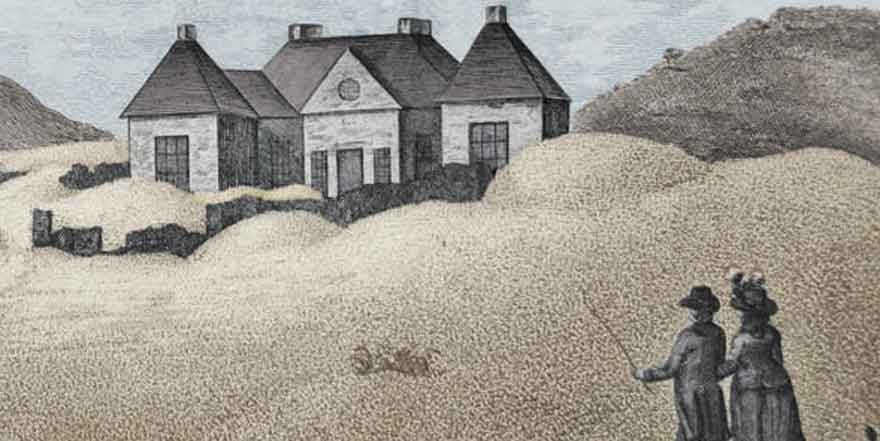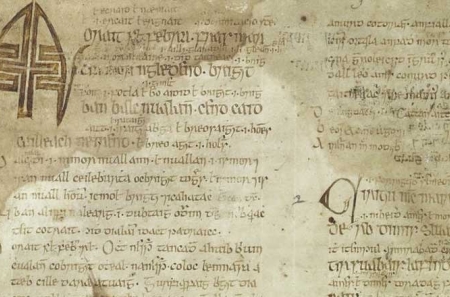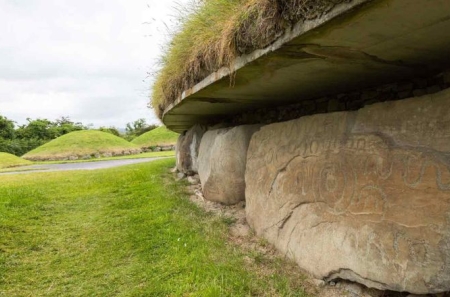
What is Ireland doing on climate change?
29 April 2021RIA author John Sweeney reflects on climate and society in modern Ireland in the latest issue of Proceedings of the Royal Irish Academy.
According to RIA author John Sweeney, 'Irish society has been slow to react to climate change concerns and only through a series of catalytic extreme events has public and political attitudes shifted, induced by both ‘bottom-up’ activism and ‘top-down’ international agreements. Accordingly, Ireland is now on the threshold of taking the radical steps necessary to shed its ‘climate laggard’ status and embark on the road to a post-carbon society'.
Sweeney’s contribution to our special issue of Proceedings of the Royal Irish Academy on Climate and Society can be read online or downloaded free of charge until the end of May.
Proceedings of the Royal Irish Academy is a peer-reviewed journal which publishes original research papers primarily in the fields of archaeology and history, but also welcomes submissions on aspects of culture, including material culture, from the perspectives of other disciplines, as well as submissions in Celtic Studies and literature. The journal is edited by James Kelly and Tomás Ó Carragáin.
Earlier issues, along with the most recent issue, are available in print form exclusively here on our website or by subscription to JSTOR, and can be viewed there. Online copies are also available by subscription to JSTOR.
Included in the purchase of this print copy is the option for a free online copy of this issue on JSTOR.
All links below will take you directly to the article on JSTOR.
CONTENTS
1. Introduction: Constructing the history of climate and society in Ireland (pp. i-x)
James Kelly and Tomás Ó Carragáin
2. Climate change and hunter gatherers in Ireland: problems, potentials and pressing research questions (pp. 1-22)
Graeme Warren
3. Tracing environmental, climatic and social change in Neolithic Ireland (pp. 23-50)
Meriel McClatchie and Aaron Potito
4. A question of scale? A review of interpretations of Irish peatland archaeology in relation to Holocene environmental and climate change (pp. 51-81)
Phil Stastney
5. Siccitas magna ultra modum: examining the occurrence and societal impact of droughts in Prehistoric Ireland (pp. 83-104)
Gill Plunkett, David M. Brown and Graeme T. Swindles
6. On the brink of Armageddon? Climate change, the archaeological record and human activity across the Bronze Age–Iron Age transition in Ireland (pp. 105-128)
Benjamin Gearey, Katharina Becker, Rosie Everett and Seren Griffiths
7. Cultural change and the climate record in final prehistoric and early medieval Ireland (pp. 129-158)
Lisa Coyle McClung and Gill Plunkett
8. Climate, disease and society in late-medieval Ireland (pp. 159-252) FREE
Bruce M.S. Campbell and Francis Ludlow
9. Climate, weather and social change in seventeenth-century Ireland (pp. 253-271)
Raymond Gillespie
10. Climate, weather and society in Ireland in the long eighteenth century: the experience of the later phases of the Little Ice Age (pp. 273-324)
James Kelly
11. ‘Nature herself seems in the vapours now’: poetry and climate change in Ireland 1600–1820 (pp. 325-347)
Lucy Collins
12. Seeing the natural world: Comhbhá an Dúlra (pp. 349-364)
Máire Ní Annracháin
13. Reconstruction of hydrological drought in Irish catchments (1850–2015) (pp. 365-390)
Simon Noone and Conor Murphy
14. Climate and society in modern Ireland: past and future vulnerabilities (pp. 391-409) FREE for the month of May
John Sweeney



